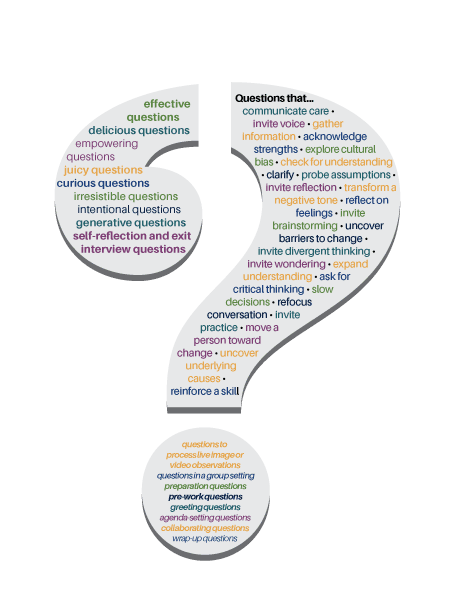Posted: January 18, 2022
"When my intent is to share knowledge, I become the expert, and everyone else becomes objects or faces with numbers associated with them. When I walk in with the intent to create an experience in which people realize what is possible for themselves, then magic begins" (Wise & Littlefield, 2017, p. 6).

It's been a long couple of years for educators in the early care and education (ECE)/out-of-school time (OST) world, and 2022 is starting out with more of the same--challenges of a continuing pandemic, staffing shortages, and mental health crises for children, families, and employees. Is there anything positive to be done? Yes. A lot. Perhaps the first thing is to listen. Asking questions and listening is the hallmark skill of coaching. This means that we approach our co-workers with humility, sincerely asking how they are and what's going well for them. We can adopt a commitment to approach our workplace with a coaching attitude. Coaching is not about coming in as the expert, but rather being curious and committed to another person's well-being, helping them to uncover "what's possible." Anyone can be a coach. You don't have to be a director or an outside quality consultant to coach. You, whoever you are, can begin to be a supportive employee for another using coaching skills.
Here are some sample questions you can modify for your own use:
- "I can tell this is important. I really want to think about it with you. Can we get back together around 4:00 and put our heads together to find a solution?"
- "What are your hopes as you try this?"
- "There are a lot of things that aren't possible, but what IS possible?"
- "I love how you were playing with your group outside. How did you come up with that idea?"
- "What about your job gives you the greatest personal satisfaction?"
- And even a non-work-related question like "What are you looking forward to this weekend?" will allow you to get to know a colleague better and maybe find a way to use personal interests and talents to bring more joy and camaraderie to the work setting.
If you'd like to learn more about coaching through questions, check out the newly launched course, "Coaching Through Questions." This is a three-hour course. You can review all the content, handouts, and videos for free. If you'd like to receive professional development credit, you will need to pay a small fee ($10), take an assessment, and score 80 percent or higher.
Reference
Wise, W. & Littlefield, C. (2017). Ask Powerful Questions: Create Conversations that Matter. CreateSpace Independent Publishing Platform.

